In the last few decades, veganism and vegetarianism have become more prevalent in mainstream society than ever before, and for good reason! The right kind of vegan diet can support the prevention of heart disease and type 2 diabetes. Balanced plant-based diets can provide some people with more energy and assist with weight loss goals. Many people opt for veganism or vegetarianism because they want to help the environment and lessen their carbon footprint.
For others, veganism is a religious or cultural choice. Regardless of the reasoning behind the decision, a balanced vegetarian or vegan diet can be highly beneficial to an adult’s health. However, if you are vegan and are planning to or have recently become pregnant, you may be wondering if veganism is safe for your developing infant, too.
Defer to the experts.
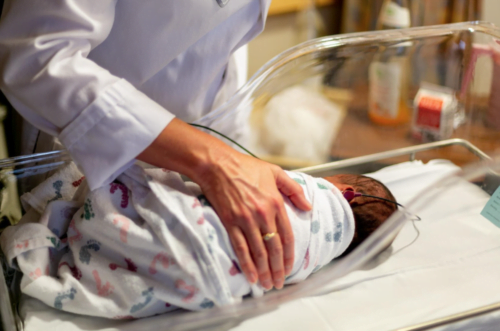
According to the American Dietetic Association dietitians, a vegetarian diet is safe during various stages of the life cycle, including pregnancy, lactation, childhood, and adolescence, so long as it is well-planned. Fortunately, it is not difficult to plan and maintain a healthy vegan diet for yourself and your baby. There are a few guidelines you can follow to ensure optimal health for you and your vegan children from infancy through the toddler years.
Most of these guidelines involve paying attention to foods with specific health benefits to help you meet your and your baby’s nutrient needs. Vegan infants and young children can be equally as healthy as those who ingest animal foods like meat and dairy products. As long as you know what to look out for during your vegan pregnancy, you can expect a healthy, happy baby when it is time to deliver.
Pay close attention to nutritional balance during your vegan pregnancy.
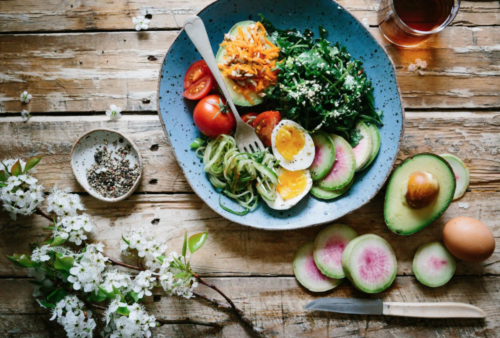
Pregnancy causes the human body to require an increased intake of macro and micronutrients. During the course of gestation, plasma volume expands, decreasing your vitamin and mineral concentration. This process occurs in all pregnant women, regardless of whether they are an omnivore or a vegan. Metabolic changes take place to support fetal growth, but there are actions you should take to support those metabolic changes. This need for additional nutrition means that as a vegan, you may need to pay closer attention to the balance of your daily meals. Picky eaters or those who suffer from allergies should always check ingredients to ensure the maximum safety and enjoyment of their meals.
Look out for potential areas of vitamin deficiency.
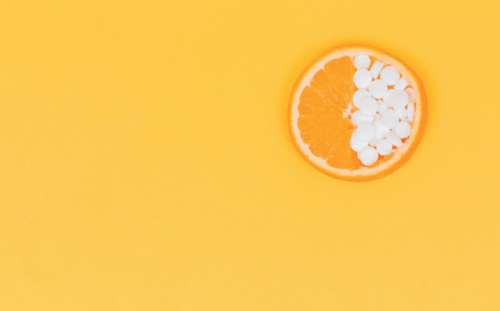
Plant-based diets tend to have a lower content of iron, zinc, vitamin B-12, and calcium. If you do not get a lot of natural sunlight, you should also be wary of vitamin D deficiency. Your doctor, nutritionist, and pediatrician can provide you with helpful information regarding supplements you and your vegan kid can take to support your nutrient intake. Often, nutritionists can guide you to supplements high in essentials like B12 and vitamin D that can be lacking due to a vegetarian or vegan diet.
Additionally, there are several simple ways to add these elements to your diet without disturbing your vegan lifestyle. Contrary to popular belief, animal products are not the only foods high in vitamin B12 and vitamin D! Various foods can fortify your body and prepare you for pregnancy, birth, and breast milk production.
Protein intake can help optimize vegan nutrition.
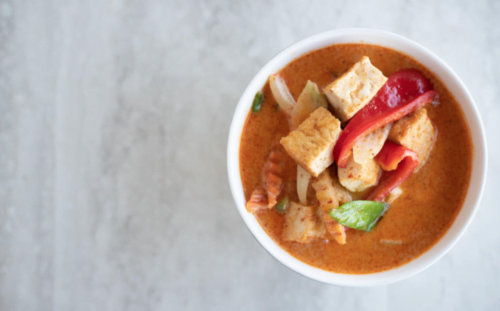
Due to the rising popularity of veganism, a vegan parent has a variety of foods to choose from when it comes to nutritional needs. A few notable meat-alternative examples include seitan, tofu, and tempeh. Soy products are especially rich in protein, so consider swapping your oat milk for soy milk. One versatile food item that is extremely rich in protein is nutritional yeast. Nutritional yeast is typically found in the form of a topping and has a flavor reminiscent of cheese.
Former cheese lovers that have gone vegan rejoice! Nutritional yeast can be a delicious addition to vegan soups, tacos, and pasta. There are high protein options that can replace your pasta as well, for example, black bean or red lentil noodles. Minor changes to your favorite dishes can keep you healthy without compromising the happiness you feel when eating your favorite meals.
Calcium isn’t limited to cow’s milk.
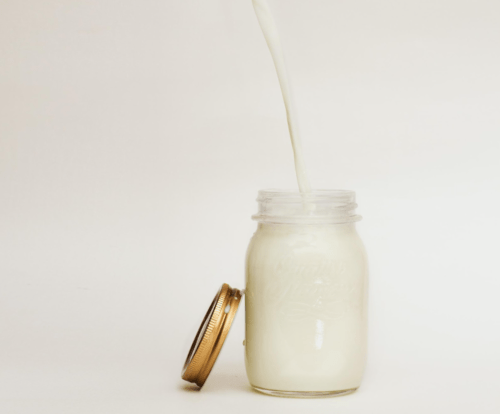
Often, when people think of calcium, they think of dairy products. As a vegan, these items are strictly off-limits. However, this does not mean that you don’t have any milk products to choose from as a vegan mother. Dark green vegetables are a fantastic alternative source of calcium. Additionally, fortified pseudo-dairy products like plant yogurt, nut butter, and soy or coconut milk are lovely alternatives to cow’s milk that can provide you with plenty of calcium content.
Be proactive about probiotics.
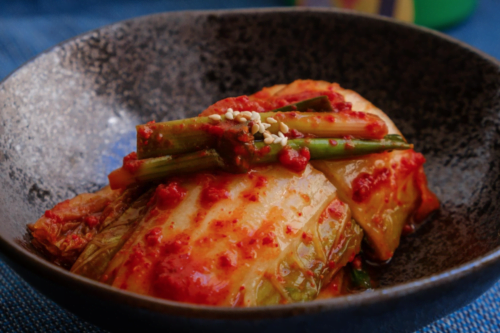
During pregnancy, it is essential to consume a healthy amount of key nutrients like probiotics and vitamin k2. Luckily, these nutrients are fairly easy for your body to absorb, vegan or not! One of the most popular forms of probiotic consumption today is kombucha. It is available bottled in fresh food stores like Whole Foods and Trader Joe’s. Some restaurants even create their own and put it on tap as a non-alcoholic beverage alternative.
Kombucha is safe for vegetarians to consume during pregnancy. Still, some people struggle to enjoy it due to its bitter taste. Suppose you are not a kombucha fan or do not see yourself consuming enough to avoid nutritional deficiencies. In that case, there are several healthy alternatives for vegan mothers. If you have already begun adding tempeh to your diet to meet your protein needs, you will be pleased to know that it is one of the best ways to consume vitamin K2 and probiotics.
For those who love Asian and Eastern cuisine, kimchi and miso foods can also be excellent sources of each of these for nutrients. Next time you have a sandwich for lunch, ask for extra pickles, and don’t skip the sauerkraut. Fermented and sprouted plant foods are highly beneficial for pregnant mothers and vegan children.
Breakfast is the most important meal of the day.
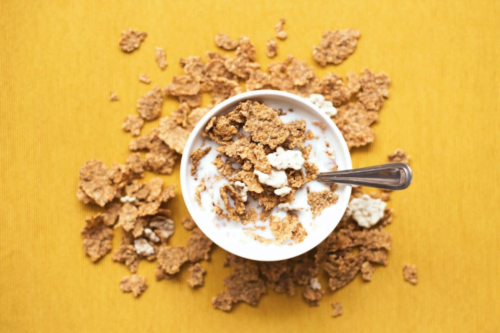
Starting your morning out right can help set the tone for your entire day. More importantly, it is an opportune time for vegan mothers to work in a ton of healthy whole grains and carbohydrates! Many of the foods you enjoy during breakfast already contain high contents of grains and vitamins. If not, pregnant women can easily swap them for delicious alternatives that do. One of the most popular breakfast foods is cereal.
Cereal is simple and easy, so for a vegan mother with a newborn, it can be a morning-time godsend after a restless night. Enriched cereals are often easy to find and fortified with healthy grains. Consider chopping up a few bananas and throwing them into the mix. Coupled with soy milk and some almonds sprinkled over the top, you have a healthy and nutritional breakfast that took almost no effort to execute!
How can I make sure morning sickness does not get in the way of my child’s diet?
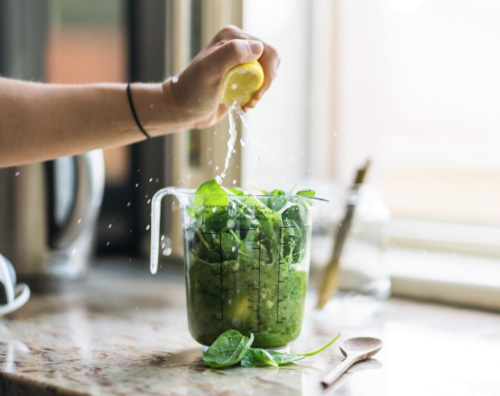
Vegan moms who suffer from morning sickness: we have not forgotten about you. Often, pregnant women struggle to keep down solid foods in the morning due to nausea. The best way to combat this without compromising the nutritional intake for your vegan baby is by making healthy smoothies. If you are unsure where to find tasty vegan smoothie ideas, try combining some of the foods mentioned in this article to create a personalized vegan pregnancy shake.
For example, add some bananas and nut butter with soy milk and ice for a protein-packed and calcium-rich start to your day. If you prefer green smoothies, leafy vegetables like kale are high in nutrients and easy to combine with other veggies like avocado and healthy fruits like apples. If you are taking a vitamin D supplement under the recommendation of your nutritionist, consider asking them about a powder alternative so that you can add a scoop to your smoothies.
Veganism affects your breast milk.

Every mom-to-be needs to examine their current lifestyle choices when they become pregnant or make plans to become pregnant. If you have begun researching your lifestyle to protect your baby after conception, you are already a wonderful mom! Many people understand the effects that diet and lifestyle have on an unborn baby. However, people may overlook these aspects after the baby is born. It is critical to remain equally vigilant about your nutritional intake after your baby is born. This sentiment is especially true if you plan on providing breast milk to your vegan baby.
Breast milk is an excellent alternative to infant formula. It can provide your vegan child with the nutrients they need to support optimal growth and development. Breastfed infants receive valuable antibodies that help strengthen their immune systems. One thing to keep in mind is that you may need a few extra calories while breastfeeding. Increased caloric intake can help provide a mother with enough energy and nutrition to produce milk. This requirement for a higher-calorie diet does not mean that you cannot remain vegan. There are plenty of calorie-rich foods to indulge in for a breastfeeding vegan mom.
Which foods are best for breast milk?

Examples of foods that can help provide the nutrients you need to produce healthy breastmilk include lentils, leafy vegetables, and dried fruit. The foods that you relied on throughout your vegan pregnancy can continue to support your health after birth, too, like cereals and bread enriched with whole grains. The most important nutritional factors to pay attention to during breastfeeding as a vegan mom include iron, protein, and calcium. A helpful tip: iron-rich foods high in vitamin C can facilitate iron absorption in your body, for example, citrus fruits.
Raising vegan children doesn’t have to be difficult. Many of the challenges vegan mothers face are the same as those who are omnivorous. As long as your diet is nutritionally balanced and you and your vegan children feel healthy, there is no reason you should not continue your vegan lifestyle throughout your pregnancy. If you have specific concerns, the best way to address them is by consulting with a healthcare professional.











